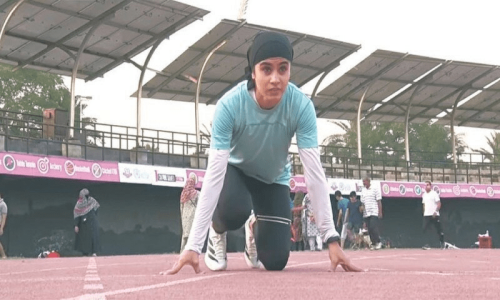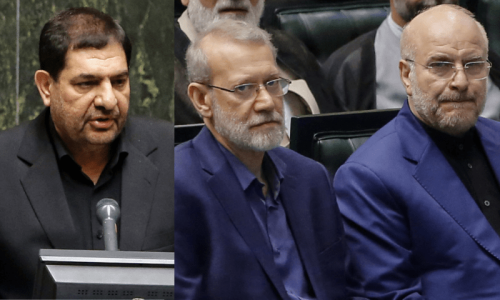A SENSE of déjà vu is becoming inescapable when reading the IMF reviews of Pakistan’s ongoing programme. The latest review documents, released earlier in the week, read just like the previous review. The government is still struggling to implement its privatisation agenda and restructure public-sector enterprises, still talking about a plan to reduce the circular debt while relying on power surcharges to meet debt-service costs, still debating the passage of amendments to upgrade the Anti Money Laundering Act, and still making promises to pass legislation to enhance central bank independence. One thing that the staff review, followed up by the conference call with the mission chief, has done is to address the questions around the deficit numbers from last fiscal year. However, this is increasingly looking like a pointless controversy. The fund team says they have taken a close look at the numbers and adjusted deficit upwards by 0.1pc of GDP, adding that “we do not have any evidence of intentional wrongdoing on the side of the authorities”. Beyond intentional wrongdoing, the whole controversy becomes little more than a debate around accounting conventions.
A new element in the review is the discussion of the China-Pakistan Economic Corridor. Significantly, the Fund has poured a bucket of cold water on the expectation that implementation of the CPEC projects will drive growth. “Any demand-driven economic expansion as a result of project implementation is expected to be limited,” the report says, since investment is likely to be offset by higher imports. The growth prospects resulting from CPEC will come later, once the infrastructure is in place and able to support a higher level of economic activity. That crucially hinges on the larger macroeconomic environment and how conducive it is to supporting investment and growth. Moreover, proper implementation of the projects, which includes managing the risks contained within them, will be crucial, and here too the government’s track record is weak. But with only one more year left to go for the programme, the impression is that the government is struggling with the structural reform agenda. Some successes have indeed been scored, like the interest rate corridor implemented by the State Bank or the legislation for the Credit Information Bureau; but these, in a sense, are the low-hanging fruit. The real test comes with the mammoth privatisations, and broadening of the tax base, and in those areas the successes have yet to come.
Published in Dawn, October 11th, 2015
On a mobile phone? Get the Dawn Mobile App: Apple Store | Google Play










































